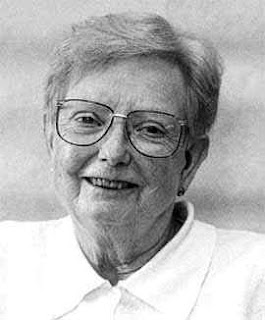 |
| Elizabeth Fennema |
I'm assembling a letter of nomination and resume in a Google Doc that is open to public comments. Beyond this, I need up to 5 letters of recommendations. If you want to write one of the letters, let me know at raymond@mathed.net. I'll be recruiting a few potential letter writers personally, but will take any help people wish to offer. I encourage you to sign this petition in support of her nomination, and I'll collect names from this petition and include them as co-signers of the letter of nomination.
If you don't know Elizabeth Fennema or why she deserves an NCTM Lifetime Achievement Award, keep reading for a short biography of her below. You can also read her biographies on Wikipedia and the University of St. Andrews. And don't forget to review and contribute to the letter of nomination, resume and petition.
Elizabeth Fennema Biography:
Elizabeth Fennema is an Emerita Professor of Curriculum and Instruction at the University of Wisconsin-Madison. Her active career in mathematics spanned about 40 years, starting as a graduate student at UW-Madison in the 1960s, then as a faculty member until the mid-90s, then continuing in retirement as an emerita professor.
Fennema is known for two field-changing bodies of work, either of which alone would be worthy of lasting recognition. First is her work about gender in mathematics. After publishing a review of gender differences literature in JRME in 1974, she teamed with Julia Sherman to produce what are now known as the Fennema-Sherman studies. With methodological rigor and new measurement tools (the Fennema-Sherman Scales), the pair redefined knowledge and perspectives on the intersection between gender and achievement in mathematics, showing that under-performance by females was sociocultural in nature and a function of opportunity, and not due to differences in biology.
In the 1980s, Fennema combined with Thomas Carpenter and others for another grand body of work, now known as Cognitively Guided Instruction and summarized for teachers in the book Children’s Mathematics. The research program was a model for applying new theories of constructivism to children’s mathematics learning, and took equally seriously the development of professional development to empower teachers to use their findings to improve elementary mathematics education. Few, if any, mathematics research programs to date have been as comprehensive, rigorous, and beneficial to the field of mathematics education as CGI.
NCTM’s book Classics in Mathematics Education Research (2004) contains articles representing both of these bodies of work (Fennema & Sherman, 1977; Carpenter, Fennema, Peterson, Chiang, & Loef, 1989), making Elizabeth Fennema the only author with two articles recognized as classics in mathematics education. According to citation counts in Google Scholar, Fennema has authored 7 articles or books that have been cited over 1000 times. Searching the JSTOR archives of the Journal for Research in Mathematics Education for “Fennema” yields 431 results, putting her ahead of her contemporaries Thomas Romberg (332 results) and Douglas Grouws (379 results), both NCTM Lifetime Achievement Award recipients. Fennema served NCTM as the chair of the Research Advisory Committee in the late 1970s and was on the JRME editorial panel from 1977-1979, in addition to editing a number of books co-published by the council in the 1980s and 1990s. Fennema has been awarded for her work by the American Educational Research Association and the Association for Women in Mathematics Education, holds an honorary doctorate from Mount Mary College, and was named a member of the National Academy of Education in 1997.